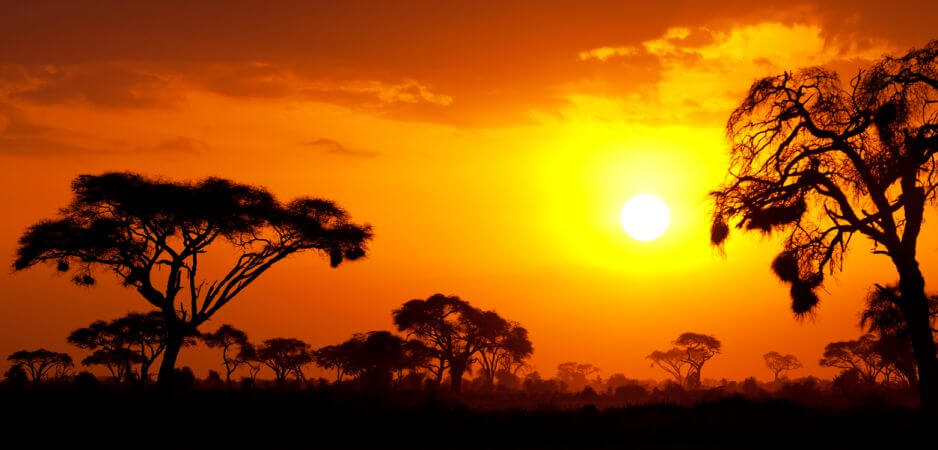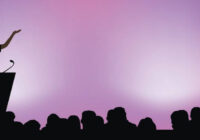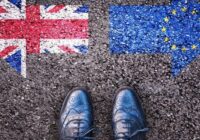Even as economic turmoil buffets the continent, elections are the flavor of the season as big men start to tumble from their thrones.
Twelve fateful months ago, the authors decided they would tell a new “story of Africa with its multitudinous cadences and intricate plots.” Over the last 11 editions of Africa This Month, many themes have bubbled up to the surface. The wobbly global economy has taken its toll on Africa. Both Brexit and the election of Donald Trump have created uncertain and interesting times for this great continent. The issue of justice has rumbled on through the year with the International Criminal Court (ICC) in near-constant spotlight.
Yet perhaps the hulking theme this year has been democracy. In the January edition of Africa This Month, the authors pointed out that 19 general elections were scheduled in 2016. They have all now taken place. Some were largely free, some not so free and some not free at all. But the fact that they took place at all is a reaffirmation of the continent’s commitment to the overarching path of inclusive representation. Labels such as the “Dark Continent” are now antiquated as the dominance of the proverbial “Big Men” begins to wane.
The fact that two presidents were voted out of power this month is perhaps the most promising exemplar. In an earlier era, this would have been impossible but elections have now become the flavor of the season in Africa. Yahya Jammeh, president of The Gambia, and John Dramani Mahama, president of Ghana, lost elections in two strikingly different countries that represent two of the many faces of Africa.
GAMBIAN BIG MAN FAILS TO LAST A BILLION YEARS
Jammeh is a stereotypical African big man. He seized power in 1994 in a relatively bloodless military coup. Since then, Jammeh has earned notoriety for claims that he could heal HIV/AIDS with a herbal concoction and that he could cure infertility among women. He walks around with prayer beads, finds homosexuality “anti-Allah” and threatens to slit the throats of gay men when he is not promising to “cut off” their heads.
More worrying than his claims is the ruthless brutality he has unleashed upon his people. In September 2015, Human Rights Watch declared The Gambia a “state of fear” with arbitrary arrests, torture and killings a feature of daily life. Over the years, Jammeh’s intelligence apparatus and a paramilitary hit squad known as the “Jungulars” have become infamous for striking terror into the hearts of his people.
Unsurprisingly, Jammeh declared this October that The Gambia was pulling out of the ICC. Apparently, the country was frustrated with the court for not holding the European Union (EU) responsible for the deaths of Africans crossing the Mediterranean Sea. In reality, it would appear that Jammeh was making a cynical move to avoid international justice in case he lost power and decided to hold on by all means.
The move has turned out to be prescient. Most surprisingly, Jammeh has lost the elections this month despite all his goons. His braggadocios claim to the BBC that he would rule The Gambia for “1 billion years” has proved to be an inane blast of hot air. On December 2, Jammeh even conceded defeat to Adama Barrow, the charismatic opposition leader with humble roots. He did so on camera for all to bear witness. In this tiny state of barely 2 million people that has experienced only two heads of state since independence in 1965, such developments seemed incredulous. They have turned out to be so.
Jammeh has now had a change of heart. Even as crowds were celebrating in the streets, Jammeh declared that “serious and unacceptable abnormalities” had forced him to reject the outcome of the recent election. He called for “fresh and transparent elections” under a new “God-fearing and independent electoral commission.”
Some fear that Jammeh could lead The Gambia into a bloody civil war. However, such fears might be exaggerated. The Gambia is a tiny country occupying both banks of Gambia River with Senegal all around it. It exists as a separate state because the British found it useful to seize and ship slaves along the river and then on to the Caribbean and the United States. During the era of the infamous triangular slave trade, ships left ports like Bristol laden with finished goods that were dumped in much of Africa. Then they loaded up these ships with slaves and plonked them off for sugar, cotton or tobacco plantations in the New World. In the New World, they picked up these slave-produced commodities so that the looms of Lancaster and elsewhere could keep spinning as workers supplemented their meager calories with sugary tea and smoked their way to death.
Even after the abolition of the slave trade in the British Empire, The Gambia was too strategic to be handed over by the British. A cursory look at any old tribal map of that part of West Africa demonstrates how tribes that had lived there for centuries were arbitrarily divided into the two states of Senegal and The Gambia by France and the United Kingdom. Centralized structures of repression and patronage replaced tribal elders and village councils, hurtling people into penury, fear and oppression. Tragically, they paid the price in blood, liberty and resources to sate the Franco-British lust for wealth and power. Jammeh embodies the same lust of the former imperial masters.
Luckily for Africa, in the words of Nobel laureate Bob Dylan, “the times they are a-changin.’” The Economic Community of West African States (ECOWAS), the African Union (AU) and the United Nations (UN) have emphatically asked Jammeh to step down. Marcel de Souza, the ECOWAS Commission’s president, in his end of the year address, noted that “the sudden volte-face by the outgoing President has put the country in a worrying political situation with an uncertain end.” Speaking to reporters, De Souza announced that if Jammeh did not relinquish power at the end of his term, ECOWAS had mandated a standby force from Senegal to intervene.
Senegal nearly envelopes The Gambia and is known to have intervened against a military coup in 1981. As a non-permanent member of the UN Security Council, Senegal is currently seeking broad consensus from the body, on the matter. Force may be the only language a despot like Jammeh understands to bring him to respect the sovereign will of the Gambian people. The Gambia is small enough for the ECOWAS, the AU and the UN to step in and prevent the country from going to civil war.
GHANAIAN DEMOCRACY IS GROWING UP
This month, it was a tale of two elections in Africa. In stark contrast to The Gambia, Ghana’s election is leading to a transfer of power that would be the envy of the US today. John Dramani Mahama, the outgoing president, got 44.4% of the vote and lost by over 1 million votes. He duly called Nana Addo Dankwa Akufo-Addo who won 53.9% of the vote and conceded defeat rather graciously. Ghana is a well-functioning democracy that will experience yet another peaceful transition of power. This makes this election a paragon of some of the finest democratic ideals that should be emulated by other African states and extolled by future generations.
 Mahama lost because Ghana’s economy hit the doldrums. Like many other countries, falling commodity prices have hit Ghana hard. Ghana’s main exports remain crude oil, gold and cocoa. Ironically, the country’s biggest import is refined petroleum. Ghana is yet to emerge from the colonial pattern of trade and, as a result, suffers hugely during market downturns.
Mahama lost because Ghana’s economy hit the doldrums. Like many other countries, falling commodity prices have hit Ghana hard. Ghana’s main exports remain crude oil, gold and cocoa. Ironically, the country’s biggest import is refined petroleum. Ghana is yet to emerge from the colonial pattern of trade and, as a result, suffers hugely during market downturns.
Ghana’s colonial-era laws and dysfunctional institutions clog its economic arteries. Like many emerging economies, much of the money that comes into the exchequer is siphoned off or spent unwisely. In 2015, Ghana’s public debt reached 71% of the gross domestic product (GDP), and it had to go cap in hand to the International Monetary Fund (IMF) for a $918 million bailout to restore its “debt sustainability and macroeconomic stability.” An austerity program ensued to the pronounced displeasure of Ghanaians. This year, embarrassingly, Ghana could not pay its bills to Nigeria, which shut off gas supplies in retaliation.
Although, the World Bank “constantly ranks Ghana among the top three in Africa for freedom of the press and freedom of speech,” it has also estimated unemployment between the ages of 15-24 to be 48%. The report estimating such high unemployment was released just after the government claimed that it had created 600,000 jobs over the last four years, leaving it red faced.
Not only jobs but also power has been in short supply. Mahama was nicknamed “Mr. Dumsor,” which literally translates as Mr. Power Cut. Power failures of six to 24 hours were common. Both power generation and distribution are in trouble. The country’s biggest source of power has been the Akosombo Dam. Climate change has led to decreasing rainfall, which has led to a diminishing amount of water in the dam. This, in turn, means the dam’s electricity production has declined at a time when the population and demand for power in the country is on the rise.
Transmission and distribution are another can of worms, with the notoriously corrupt and inefficient state-owned electricity company holding a monopoly. Far too many Ghanaians have illegal connections, many tamper with their billing meters, and a significant number simply do not pay their bills.
In the face of such daunting challenges, Mahama’s government was ineffective and enmeshed in corruption scandals that gave Akufo-Addo’s message a credible opening. He has promised to make Ghana the star of Africa again. He has to get to work on the economy and has a tough task ahead. But as far as democracy goes, Ghana is already a star. As Akufo-Addo rolls up his sleeves to take up the challenge of leading Ghana, the immaculate words of Mahama’s concession speech provide goodwill and comfort to him and the nation. To wit: “And while it is true that only one person can be elected President. In reality, and certainly in a democracy such as [Ghana’s], every election is an opportunity for the people of [Ghana] to express their will, to have their say in who will lead them in the shaping of Ghana’s future. In this way, each victory belongs to the people. And the true winner is always Ghana.”
KABILA DEPARTS WITH THE OUTGOING YEAR
Political parties in the Democratic Republic of Congo (DRC) have reached a draft agreement, as per which President Joseph Kabila will step down after elections are held before the end of 2017. The deal was brokered by the Catholic Bishops’ Conference in the DRC. Kabila is the big man in the country who has been in power for two terms. There was widespread fear that he may stay on for another term, if not the foreseeable future.
It is early days to tell what might transpire but the news of this deal is quite heartening. The DRC has not seen a single peaceful transfer of power since 1960. It is a gigantic country almost as big as Western Europe. It boasts some of the largest mineral resources in the world, with an abundance of diamonds, gold, copper, cobalt and zinc. A curse would befall the DRC when once a white king craving red rubber caused black death in this land. He was none other than the barbaric, brutal and bloody King Leopold II who set a standard for cruelty that has been rarely surpassed since.
The DRC has never really gotten over the toxic legacy of Leopold II. After independence in 1960, Mobutu Sese Seko “seized, tortured and murdered” Patrice Lumumba, a legendary leader of the independence struggle and the country’s first democratically elected leader. Under Mobutu, the DRC was renamed Zaire and plundered in much the same manner as in the days of the Belgians. In this era of the Cold War, the US backed Mobutu and Richard Nixon called him “a strong, effective, and progressive leader in the exciting new continent, the new Continent of Africa.” Mobutu did not quite live up to those words and created a kleptocracy that robbed his people. In the words of the BBC, “Mobutu stashed much of the country’s economic output in European banks.”
As part of his “Zairanisation” policy to cleanse his country and its people’s cultural identity of any vestiges of colonial influence, Mobutu changed his name. He dropped his respective English and French names “Joseph” and “Desire,” replacing them with “Sese Seko Kuku Ngbendu waza Banga.” This loosely translates to the rooster that lords over the hens, or the all-powerful one.
As fate would have it, the all-powerful one’s downfall would come when the conflict that began with the Rwandan genocide in 1994 spread into the then-Zaire. This triggered what Medicins Sans Frontieres has called “Africa’s first world war.”
As per the BBC, 5 million people died between 1994 and 2003. That war might have ended but violence never really stopped. Rebel groups continue to operate in eastern parts of the country and endemic conflict continues.
Kabila, who ascended the throne after the assassination of his father, has been in power since 2001 and his second five-year term expired on December 19. The constitution bars him from a third term but Kabila has been trying to cling on to power. He has been breaking up protests that have been erupting since 2015. He has been able to do so because he runs a repressive shop. Opponents get jailed, tortured and shot on a regular basis. Amnesty International is not too impressed with Kabila’s human rights record. This month, Kabila has been under pressure even as he was cracking down on the opposition.
If this peace deal sticks, then it would be the perfect New Year’s gift to the people of the DRC. It might mitigate the suffering that they have almost incessantly gone through since the days of King Leopold II.
CHEETAHS UNABLE TO RUN FOR THEIR LIVES
The cheetah is the fastest land animal. It moves with incredible speed and superlative grace. Like many other species, it seemed to be heading toward extinction. In a terrifying paper presented at the National Academy of Sciences of the United States of America, scientists estimate the global population of cheetahs to be around 7,100. The paper observes that this majestic animal is now “confined to 9% of its historical distributional range.” Given such a dramatic depletion of its habitat, it is unsurprising that cheetahs are dying out. Poaching adds to the problem.
In the October 30 edition of The World This Week, one of these authors argued that climate change matters and so do other species. The planet is experiencing a sixth global biodiversity extinction crisis. Rising human population and rapacious consumption are killing other species by the day. Africa has long been the last haven for many of this planet’s most glorious species such as zebras, giraffes, lions and cheetahs.
The dying out of cheetahs like the drying out of Ghana’s Akosombo Dam ram home the point that Africans have to rethink their quest for prosperity. Can cheetahs or other endangered species such as elephants and rhinos ever be quantified in terms of GDP? Furthermore, has all the exploitation of the environment in the DRC since the days of King Leopold II truly helped the average African who lives there?
In the September edition of Africa This Month, the authors argued for saving the village to transform the continent. They end this edition and 2016 with the hope that Africans will retain some of the frugal ways of their ancestors and relearn how to live in harmony not only among themselves, but also with other species.
The views expressed in this article are the author’s own and do not necessarily reflect Fair Observer’s editorial policy.
Photo Credit: Ivan Mateev
Support Fair Observer
We rely on your support for our independence, diversity and quality.
For more than 10 years, Fair Observer has been free, fair and independent. No billionaire owns us, no advertisers control us. We are a reader-supported nonprofit. Unlike many other publications, we keep our content free for readers regardless of where they live or whether they can afford to pay. We have no paywalls and no ads.
In the post-truth era of fake news, echo chambers and filter bubbles, we publish a plurality of perspectives from around the world. Anyone can publish with us, but everyone goes through a rigorous editorial process. So, you get fact-checked, well-reasoned content instead of noise.
We publish 2,500+ voices from 90+ countries. We also conduct education and training programs
on subjects ranging from digital media and journalism to writing and critical thinking. This
doesn’t come cheap. Servers, editors, trainers and web developers cost
money.
Please consider supporting us on a regular basis as a recurring donor or a
sustaining member.
Will you support FO’s journalism?
We rely on your support for our independence, diversity and quality.






